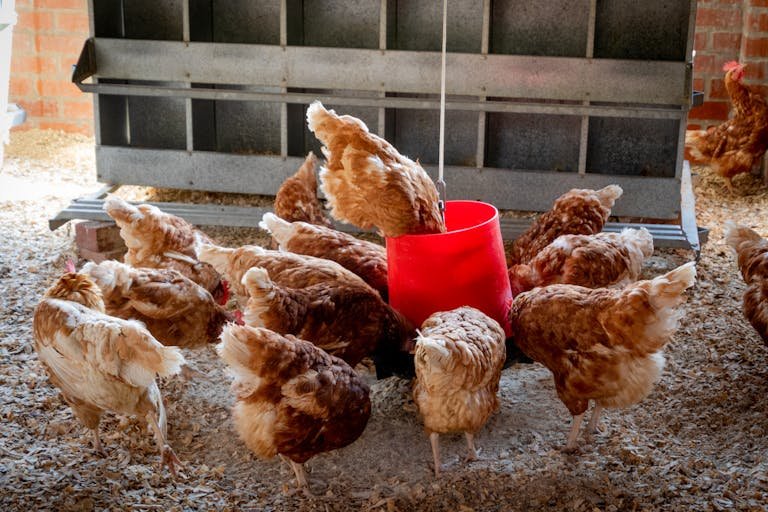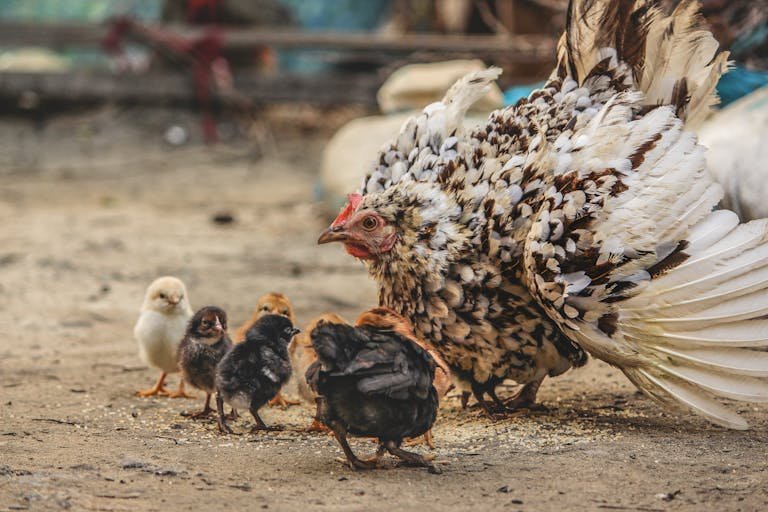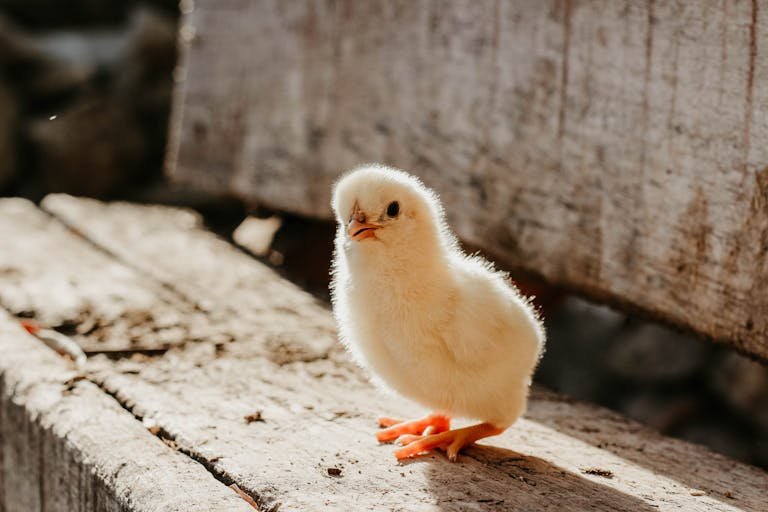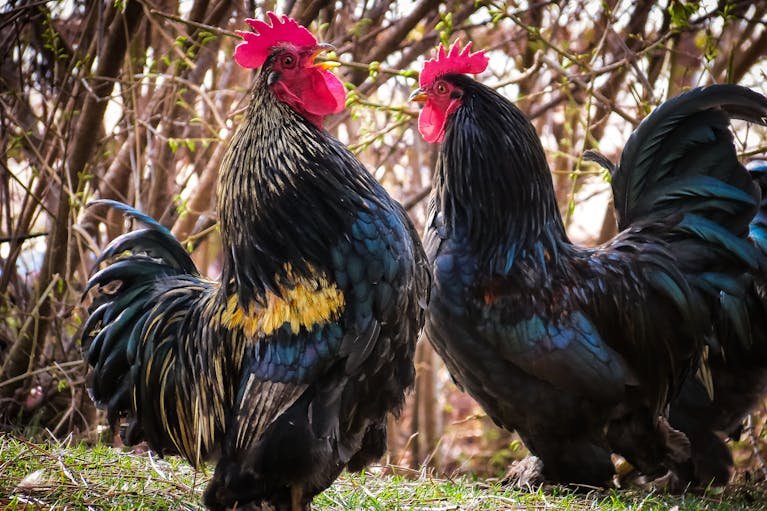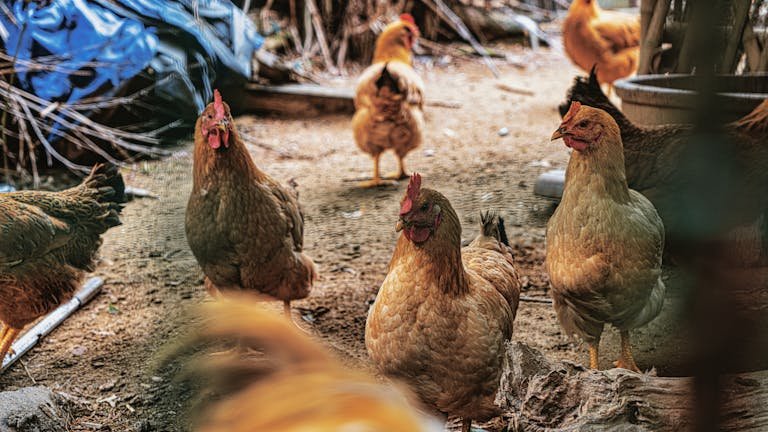Snake-Proof Your Hen House: Ultimate Protection Guide

Chickens are vulnerable to various predators, and snakes are among the trickiest to manage. Snakes not only pose a danger to your hens, but they can also eat eggs and disrupt the calm environment of your coop. If you’re facing snake issues in your hen house, I’m here to guide you through effective, proven methods to keep them away.
In this comprehensive guide, I will dive into How to Keep Snakes Out of the Hen House, natural deterrents, repellents, and some vigilant habits, can greatly reduce the chance of snakes ever intruding on your flock’s space.
Environmental Modifications to Keep Snakes Out of Your Hen House
Secure the Coop
Securing your coop is the most critical step in keeping snakes out. By ensuring all entry points are tightly sealed and reinforcing the coop with specific materials, you make it significantly more challenging for snakes to find their way in.
Mesh Fencing
One of the best ways to protect your chickens from snakes is to surround your coop with fine-mesh fencing. Snakes can often slip through larger wire fences, so I recommend using hardware cloth with a mesh size of 1/4-inch or smaller.
- Install Fine Mesh Wire: Wrap the entire coop and chicken run in this mesh to prevent snakes from slipping through.
- Buried Fencing: Snakes can dig under fences, so burying the mesh about 6 inches deep around the perimeter can prevent underground entry.
Elevated Coop
An elevated coop makes it harder for snakes to reach the inside. By raising the structure, you’ll eliminate easy access for many types of predators.
- Raised on Legs or Concrete Blocks: Lift the coop at least a foot off the ground using sturdy supports. This discourages snakes from climbing in and provides you with a clear view under the coop for easy monitoring.
Seal Entry Points
Gaps, holes, and loose materials around your coop are all potential entry points for a snake. It’s essential to check your coop carefully for any areas that could provide access.
- Inspect Regularly: Periodically examine the coop walls, floor, and roof for any gaps or weak spots.
- Use Caulking or Weather Stripping: Seal any small gaps with durable materials to prevent snakes from squeezing through.
- Reinforce with Wood or Metal: Larger gaps or holes may need to be closed with wood or metal patches for better security.
Remove Hiding Spots
Snakes often make their way toward chicken coops because they find nearby places to hide. By removing potential hiding areas, you can make the surroundings less attractive to them.
- Clear Debris: Get rid of woodpiles, rocks, and thick vegetation around your coop that could offer a hiding place.
- Mow Regularly: Keeping the grass short around the hen house reduces places for snakes to hide.
- Remove Brush and Bushes: Keep plants trimmed and remove any unnecessary bushes from the coop’s vicinity to minimize hiding spots.
Natural Deterrents to Repel Snakes
Nature provides several organic solutions to deter snakes. These options use scents and textures that snakes find unpleasant, so they avoid the area.
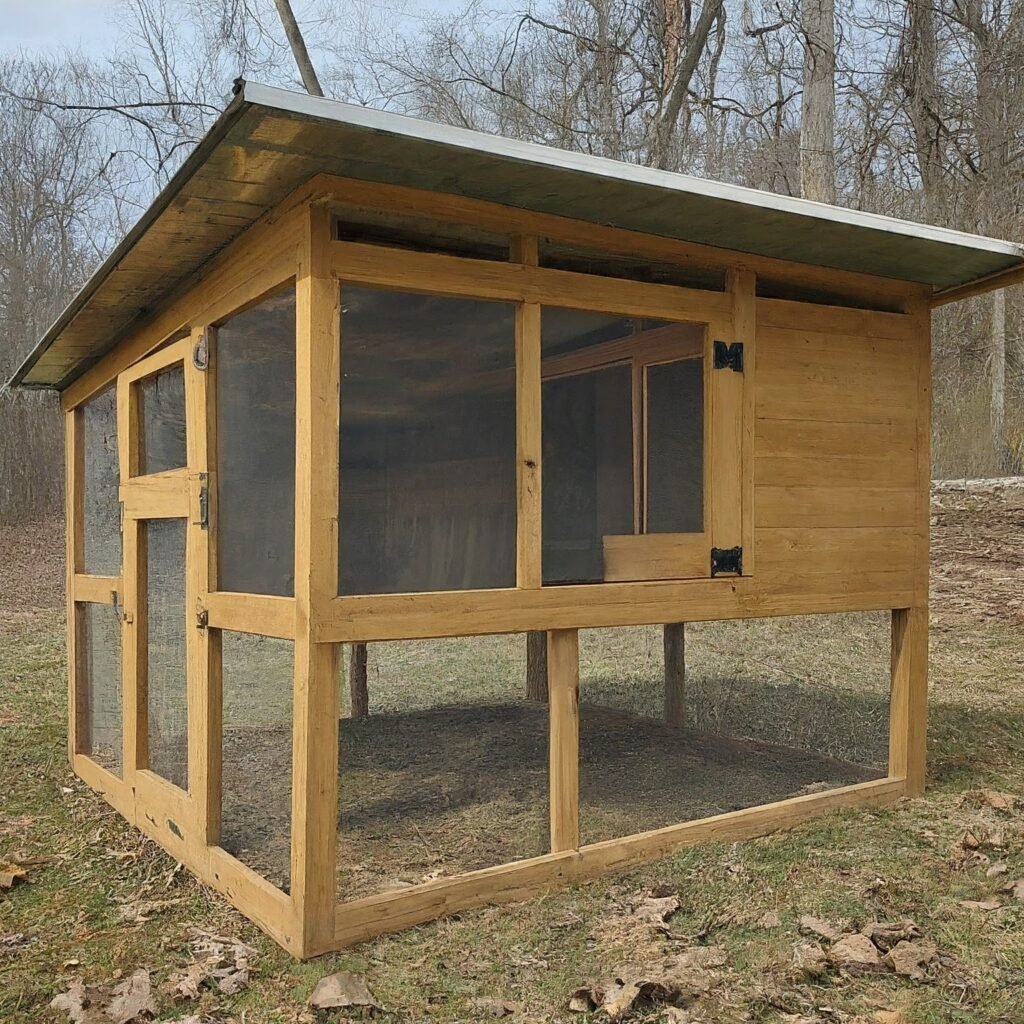
Strong-Smelling Plants
Certain plants can act as natural repellents for snakes. By planting them near your coop, you’ll be adding a layer of defense that snakes naturally avoid.
- Marigolds, Garlic, and Onions: Plant these strong-smelling plants around the perimeter of your coop. The odor can be off-putting to snakes.
- Peppermint and Lemongrass: Both of these plants have distinct aromas that snakes generally dislike.
Diatomaceous Earth
Diatomaceous earth is a powder that can be sprinkled around your coop to deter snakes. The fine, sharp particles can be uncomfortable on their scales, making them avoid the area.
- Sprinkle Around the Coop Perimeter: Use food-grade diatomaceous earth and create a border around your coop and run.
- Reapply Regularly: Rain and moisture can wash it away, so you’ll need to reapply the powder periodically.
Mothballs (With Caution)
Mothballs are a strong deterrent due to their chemical odor, but they must be used carefully around your coop as they are toxic if ingested by chickens.
- Place Strategically: Position mothballs in small containers near the coop but outside of chicken reach.
- Replace as Needed: Mothballs lose potency over time, so check and replace them as necessary.
Repellents and Traps
For a more proactive approach, repellents and traps can be effective in preventing snakes from getting too close to your chickens.
Commercial Repellents
Several commercial snake repellents are available that are designed to keep snakes at bay. Look for repellents made specifically for outdoor use and safe for farms or areas with pets.
- Apply as Directed: Follow the product instructions carefully to ensure effectiveness and safety for your chickens.
- Check Ingredients: Some repellents are made from natural ingredients like cinnamon or clove oil, which are safer for poultry areas.
Live Traps
Live traps can help you safely remove snakes from the area without harming them. Once caught, the snakes can be relocated far from your hen house.
- Choose Humane Traps: There are a variety of live snake traps on the market; choose a trap that captures without causing harm.
- Check Regularly: If you set up live traps, inspect them frequently to avoid trapping a snake for too long, which can be harmful.
Specialized Snake Traps
There are traps designed specifically to catch snakes. These traps often use adhesives that hold the snake in place without harming it, allowing for safe relocation.
- Set Up Near Entry Points: Place these traps near suspected entry points, but make sure they are out of reach of other animals.
- Wear Protective Gear When Handling: When relocating a snake, always wear gloves and use a stick or tool to handle the trap for extra safety.
Additional Tips for Keeping Snakes Out of Your Hen House
Beyond physical barriers, deterrents, and traps, some general maintenance and vigilance can make all the difference.
Regular Inspections
Regularly checking your hen house and the surrounding area can help you spot signs of snake activity before an issue arises.
- Look for Shed Skin or Tracks: Snakes leave shed skin and tracks, which can alert you to their presence.
- Search During Warm Weather: Snakes are more active in warm seasons, so increase your inspection frequency during these times.
Chicken Guardians
Some animals are natural snake deterrents, like cats and certain dog breeds that can instinctively protect your flock.
- Consider Adding a Flock Guardian: Some chicken owners keep a barn cat or guardian dog near the coop. These animals often alert you to unwanted snake visitors.
Nighttime Checks
Snakes are often nocturnal, which makes nighttime checks valuable for spotting potential intruders.
- Check Regularly at Night: Inspect your coop in the evenings, especially during warmer months when snakes are more active.
- Use a Flashlight or Spotlight: Light can help you see more clearly around and within your coop.
Keep the Coop Area Tidy
An organized coop environment discourages snakes and makes it harder for them to hide.
- Store Feed Securely: Spilled feed can attract rodents, which then attracts snakes, so ensure all feed is stored in sealed containers.
- Remove Uneaten Food at Night: If your chickens don’t finish all their food, remove it at the end of the day.
Seasonal Awareness
Being aware of the seasons and snake activity can help you anticipate when to reinforce your preventive measures.
- Increase Prevention in Warmer Months: Spring and summer are active snake seasons, so ramp up your inspections and reinforcements during these times.
- Watch for Rainy Weather: Heavy rains can flush snakes from their usual hiding spots, increasing the chances of encountering them near your coop.
Final Words
Keeping snakes out of your hen house requires a proactive approach, combining environmental modifications, natural deterrents, repellents, and consistent maintenance. By fortifying your coop, making the surrounding area less inviting, and maintaining a vigilant routine, you can provide a safe, snake-free environment for your chickens.
Remember that while it may not be possible to keep every snake out, these strategies will reduce the risk significantly. With these methods, you’ll be well-equipped to keep your chickens safe from these unwelcome intruders.
